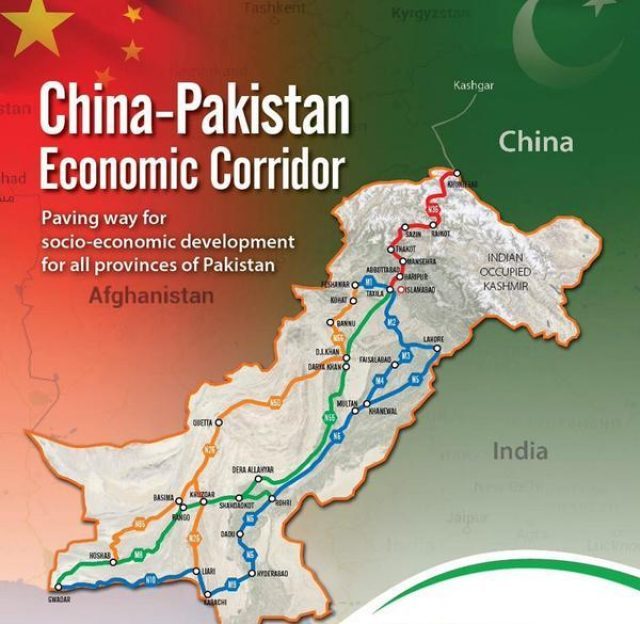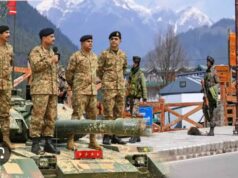CPEC Economic Corridor : Why CHINA-PAKISTAN Ties Are Unravelling Over CPEC

The multi-billion dollar Belt and Road Initiative (BRI) appears to have driven a wedge between all-weather allies China and Pakistan.
Sharp differences have emerged between the two countries over a $6.8 billion railway line project which is part of the ambitious China Pakistan Economic Corridor (CPEC), according to a report in Nikkei Asia.
The impasse has even led to an indefinite delay in the annual bilateral CPEC summit, claimed the report. This is not the first that CPEC has triggered a strain in the long-standing friendship between the two countries.
Fallout Over Rail Project
Pakistan has been expecting China to lend $6 billion at a concessional interest rate of less than 3% for the Main Line-1 project. The Imran Khan government had even hoped to finalise the lending at an interest rate of just 1%. However to Islamabad’s chagrin, China has shown increasing reluctance over lending money for the project.
The project includes dualization and upgrading of the 1,872-km railway track from Peshawar to Karachi and is a major milestone for the second phase of CPEC.
A Pakistan-based journalist told Nikkei Asia that China is not happy about lending the money since Pakistan has already sought debt relief to meet the G20 lending conditions and is not in a position to give sovereign guarantees.
The journalist said that China’s appetite for investments in large infrastructure projects has diminished because these projects are vulnerable to local politics that delay returns on investment for Beijing.
In December last year, China had even sought additional guarantees before sanctioning the loan in view of Islamabad’s weakening financial position. It had proposed a mix of commercial and concessional loans to fund the rail project, going against Islamabad’s wishes of “cheapest lending”.
A Pakistani official had said that China raised the additional guarantees issue to get clarity over Pakistan’s financial condition after Islamabad applied for debt relief from the G-20 countries, which is only meant for the world’s poorest nations.
Pakistan is currently renegotiating its $6 million extended fund facility at the International Monetary Fund (IMF), which was suspended in April 2020.
The IMF will reportedly resume the programme only if Pakistan does not take out any new commercial loans, and that is one of the reasons it is looking for concessions on loans for the ML-1 project, according to Nikkei Asia.
CPEC Summit Delayed
The Joint Cooperation Committee (JCC) is the primary decision-making body of CPEC. Its first meeting was held in August 2013 and the latest one in November 2019. The report said that the 10th JCC was originally scheduled for early 2020, but has not taken place so far.
It said that Covid-19 pandemic was initially cited as the reason behind the postponement but sources later revealed that delay has been caused due to disagreements over the railway project and special economic zones.
Sources told Nikkei that the meeting will not take place for at least three more months – by far the longest gap to date. As a result, Pakistan’s desire to start work on the package-1 from January 2021 would remain unfulfilled due to delay in finalisation of financing details.
Spate of Concerns
Discontentment between the two allies had been brewing ever since China decided to tighten its purse strings amid concerns over its investments in Pakistan. Another report on Nikkei had recently said that China is slowly backing away from CPEC due to Islamabad’s spiralling debt, series of corruption scandals and rising security costs.
China has rejected claims that it’s turning its back on CPEC but other media reports, coupled with the continuous delay in the CPEC summit, seem to confirm that it is wary of pumping more money into the debt-ridden country.
According to Asia Times, only 32 out of the 122 projects under CPEC had been completed till the third quarter of the fiscal year.
Corruption Scandals
Besides concerns over Pakistan’s ballooning debt, Beijing is also believed to be unhappy about reports of corruption involving Chinese companies that are part of the CPEC projects.
A recent report on Nikkei said that a probe by the Security and Exchange Commission of Pakistan (SECP) found irregularities worth over $1.8 billion in the power sector, with many Chinese firms receiving undue subsidies.
This was further corroborated by another report on Asia Times recently, which said China’s “illegal profiteering” from the power sector was in fact the reason behind the nationwide blackout in Pakistan earlier this month.
Citing a report of the nine-member committee, a former chairperson of the Security and Exchange Commission of Pakistan (SECP) FM Shakil made startling revelations about widespread malpractice in the power sector.
The report lifted the lid on the extent of Independent Power Producer (IPP) corruption, including among Chinese units installed under a government-to-government arrangement for China-Pakistan Economic Corridor (CPEC) related operation.
It traced 100 billion Pakistani rupees ($625 million) in annual over-payment to the IPPs and discussed the magnitude of illegal “profiteering” of Chinese energy companies.
China has earmarked $30 billion for Pakistan’s energy sector through CPEC funds. Several Chinese IPPs have been involved in the construction of as many as 27 power plants in Pakistan with a total installed capacity of 12,000 MW under the CPEC program, reported Asia Times.
“Analysts, however, have questioned the viability of these energy projects, primarily because most of the Chinese investments focused on power generation and ignored the distribution of power, which is clearly in a shambles judging by the recent blackout,” expressed Shakil.
Opposition Heat
Adding another layer of controversy is the role of the CPEC Authority chairman Lt General Asim Saleem Bajwa (Retd).
Last week, the opposition parties staged a walkout from the Senate session over the Pakistan government’s “inadequate” response to their queries on the CPEC Authority ordinance, reported Dawn.
The CPEC Authority ordinance is largely seen as an attempt by the Pakistan government to allow the military greater control over the CPEC projects.
The proposed law will allow Bajwa to replace the planning minister as co-chair of a Pakistan-China joint committee and eliminate the role of the planning ministry as an administrative division.
Bajwa is already a controversial figure in Pakistan who is said to have amassed millions of dollars of late.
The opposition had even questioned the meeting of Bajwa with the Chinese ambassador when the CPEC Authority had no chairman and the CPEC Authority’s ordinance had lapsed.
“Is [retired Lt Gen] Asim Saleem still receiving the salary of the chairman of CPEC Authority?” questioned Pakistan Muslim League-Nawaz (PML-N) Senator Muhammad Javed Abbasi. Meanwhile, Jamaat-i-Islami Senator Mushtaq Ahmad asked in what capacity did Bajwa meet the Chinese ambassador.
Ahmad said Bajwa was a “controversial” figure and yet he was made chairman of the CPEC Authority, adding that there were allegations of corruption against Bajwa.
He further said that “in the future, no such individual, who has allegations of corruption against them, should be appointed chairman of the CPEC Authority.”
Earlier, local media had exposed Bajwa’s several offshore businesses, including more than 100 companies and franchises in the US, UAE and Canada in which his families were involved.




